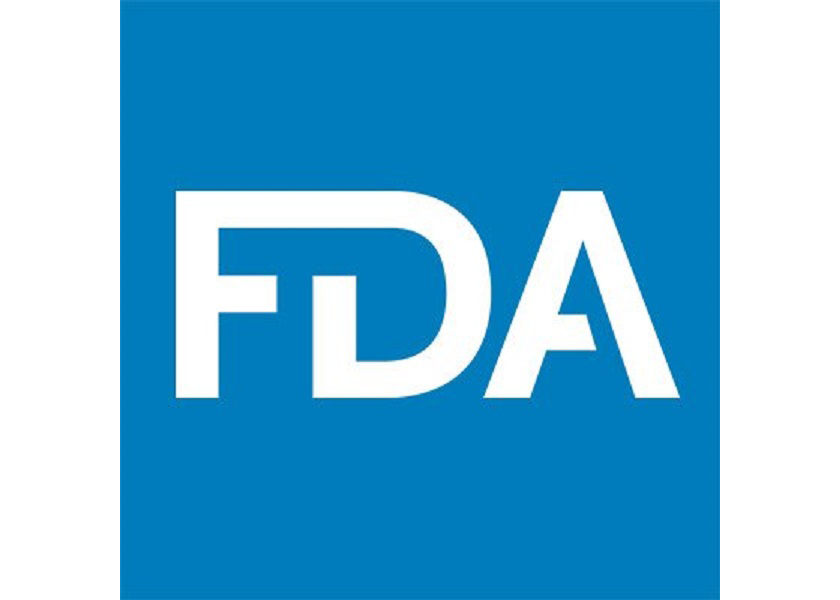FDA proposes changes to agricultural water requirements in the produce safety rule

Responding to feedback from growers who said the agency’s previous guidance was too complicated and difficult to implement, the Food and Drug Administration has changed its regulatory approach to agricultural water requirements.
The U.S. Food and Drug Administration published a proposed rule
that would revise subpart E of the FDA Food Safety Modernization Act (FSMA) Produce Safety Rule to change certain pre-harvest agricultural water requirements for covered produce other than sprouts.
The proposed rule has a 120-day comment period.
Under this proposal, the FDA said farms would be required to conduct annual systems-based agricultural water assessments to determine and guide appropriate measures to minimize potential risks associated with pre-harvest agricultural water, according to a summary.
The assessment, the FDA said, would include an evaluation of the water system, agricultural water use practices, crop characteristics, environmental conditions, potential impacts on source water by activities conducted on adjacent and nearby land, and other relevant factors, such as the results of optional testing.
Background
In 2015, the FDA published the final Produce Safety Rule, establishing science- and risk-based standards for the safe growing, harvesting, packing, and holding of produce grown for human consumption.
“During outreach and education efforts on the final rule, the FDA heard from a variety of stakeholders that certain pre-harvest microbial quality criteria and testing requirements were too difficult to understand, interpret, and implement,” the FDA said in a summary of the rule.
After additional stakeholder engagement on these agricultural water requirements, the FDA extended the compliance dates for the agricultural water requirements for covered produce (other than sprouts) to allow time for the agency to consider how best to address stakeholder concerns while protecting public health.
Sprouts are subject to different pre-harvest agricultural water testing requirements that are already in effect and are not impacted by this proposed rule.
New plan
The proposal announced today would replace the pre-harvest microbial water quality criteria and testing requirements with requirements for a systems-based pre-harvest agricultural water assessment for covered produce other than sprouts.
This approach, the FDA summary said, was developed following hundreds of farm visits and meetings with stakeholders, including an Agricultural Water Summit hosted by the Produce Safety Alliance.
“In addition, this proposal reflects findings from several recent produce outbreak investigations that offered additional insights into potential routes of contamination,” the FDA summary said. "The requirements described in this proposal are intended to be workable across produce farms of all sizes, both domestic and foreign, recognizing the wide variety of water systems, uses, and practices. They also are designed to be adaptable to future advancements in agricultural water quality science and technology.”
If finalized, the FDA said farms covered by the Produce Safety Rule would be required to conduct an assessment of their pre-harvest agricultural water annually, and whenever a significant change occurs, to identify any conditions likely to introduce known or reasonably foreseeable hazards into or onto covered produce or food contact surfaces.
Based on their assessments, farms would then determine whether corrective or mitigation measures are needed to reduce the potential for contamination.
“In light of findings from several recent produce outbreak investigations, the proposal also includes expedited mitigation measures that would be required for specific types of hazards related to certain activities associated with adjacent and nearby lands,” the summary said.
The FDA said it will hold two virtual public meetings to discuss the proposal and hear feedback.
Discretion given
The FDA said it recognizes that the current agricultural water compliance dates are set to begin in January 2022.
“The agency intends to exercise enforcement discretion for the agricultural water requirements for covered produce (other than sprouts) while proposing to extend the compliance dates for all subpart E provisions applicable to such produce, with the goal of completing the compliance date rulemaking as quickly as possible,” the FDA said. More information on the proposed compliance dates will be announced soon, the FDA said.
In an email, the United Fresh Produce Association indicating it is looking forward to reviewing the proposed rule and developing written comments on the proposal.
“United Fresh commits to working with FDA to ensure that the rules are practical and in the best interest of public health, with the shared goal of supporting the industry in producing safe produce,” United Fresh said in an email.







